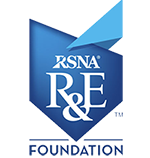Your Donations in Action: Kirti Magudia, MD, PhD
Using machine learning to risk stratify patients with prostate cancer


Prostate cancer has the highest incidence of any invasive cancer in men with a 100% survival rate if localized, but only 30% survival if metastatic. Both early identification of aggressive, clinically significant prostate cancer and decreased detection of indolent prostate cancer are key to improving the outcomes of individuals and the delivery of health care.
Though prostate biopsies are routine, prostate MRI has the potential to risk stratify patients to avoid unnecessary biopsy.
While the development of the Prostate Imaging-Reporting and Data System (PI-RADS) led to the adoption of the multiparametric prostate MRI exam consisting of diffusion weighted imaging, T2 weighted imaging, and dynamic contrast enhancement, there are limits to the predictive power of PI-RADS.
For her 2019 RSNA Research Fellow Grant project, “Prediction of Clinically Significant Prostate Cancer from Only T2 Weighted Imaging Using Machine Learning,” Kirti Magudia, MD, PhD, assistant professor of radiology at Duke University in Durham, NC, and colleagues sought to improve the noninvasive diagnosis of prostate cancer to reduce risk of patient morbidity and mortality.
The researchers worked on developing a novel deep learning approach to optimize the identification of clinically significant prostate cancer from MRI using real world prostate MRI data with ground truth of both targeted MRI/US fusion prostate biopsy and nontargeted systematic prostate biopsy.
“My hope is that this work could help to more accurately identify patients who do not need to proceed to biopsy even if lesions are identified on MRI,” Dr. Magudia said.
The R&E Foundation grant provided Dr. Magudia with critical support during her fellowship to explore a new research direction with significant protected time and resources.
“It was a stepping stone to an R&E Research Scholar Grant and has helped prepare me for applications for extramural grant funding this year,” Dr. Magudia said. “Furthermore, I was able to mentor a talented UCSF medical student, Nathan Velarde, who received his own RSNA Research Medical Student Grant on a side project of this work.”
For More Information
Learn more about R&E Funding Opportunities.
Read our previous Your Donations in Action article.